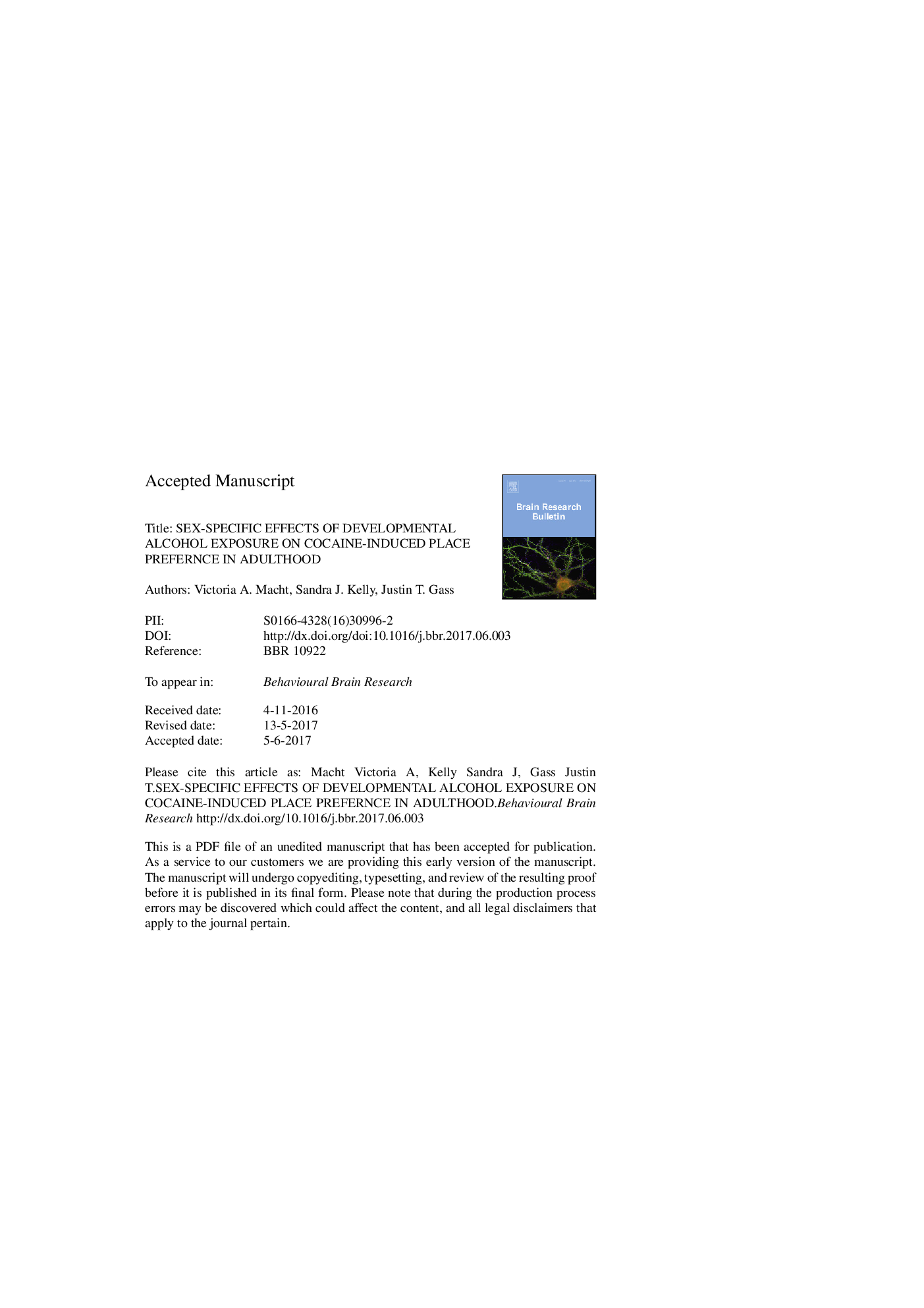| Article ID | Journal | Published Year | Pages | File Type |
|---|---|---|---|---|
| 5735122 | Behavioural Brain Research | 2017 | 41 Pages |
Abstract
Fetal Alcohol Syndrome (FAS) is associated with high rates of drug addiction in adulthood. One possible basis for increased drug use in this population is altered sensitivity to drug-associated contexts. This experiment utilized a rat model of FASD to examine behavioral and neural changes in the processing of drug cues in adulthood. Alcohol was given by intragastric intubation to pregnant rats throughout gestation and to rat pups during the early postnatal period (ET group). Controls consisted of a non-treated group (NC) and a pair-fed group given the intubation procedure without alcohol (IC). On postnatal day (PD) 90, rats from all treatment groups were given saline, 0.3Â mg/kg, 3.0Â mg/kg, or 10.0Â mg/kg cocaine pairings with a specific context in the conditioned place preference (CPP) paradigm. While control animals of both sexes showed cocaine CPP at the 3.0 and 10.0Â mg/kg doses, ET females also showed cocaine CPP at 0.3Â mg/kg. This was accompanied by a decrease in c-Fos/GAD67 cells in the nucleus accumbens (NAc) shell and GAD67-only cells in the NAc shell and PFC at this 0.3Â mg/kg dose. ET males failed to show cocaine CPP at the 3.0Â mg/kg dose. This was associated with an increase in c-Fos only-labeled cells in the NAc core and PFC at this 3.0Â mg/kg dose. These results suggest that developmental alcohol exposure has a sexually-dimorphic effect on cocaine's conditioning effects in adulthood and the NAc.
Related Topics
Life Sciences
Neuroscience
Behavioral Neuroscience
Authors
Victoria A. Macht, Sandra J. Kelly, Justin T. Gass,
